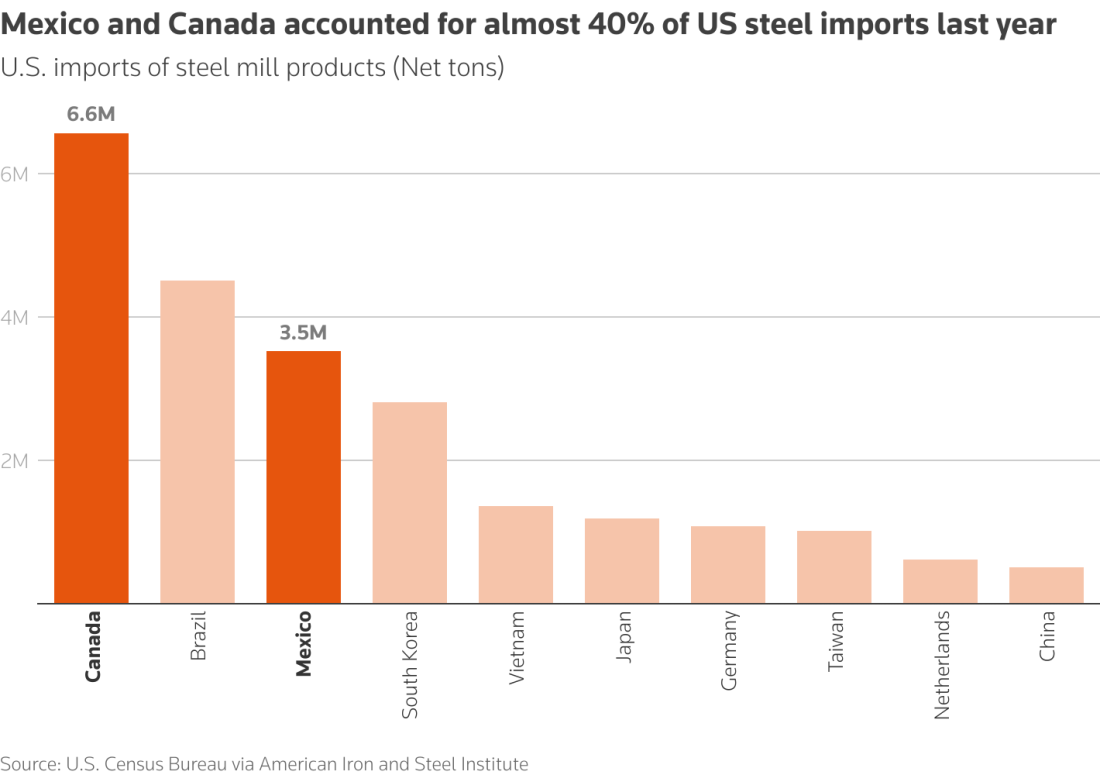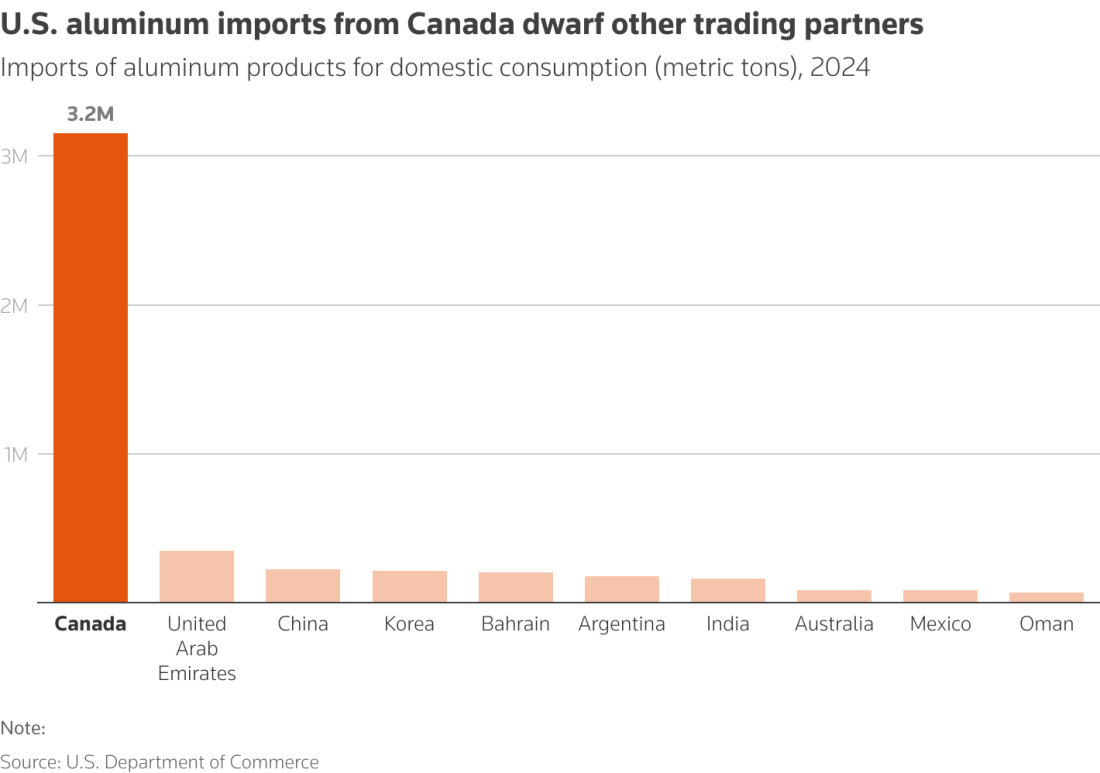Thousands of flights cancelled as Gulf hubs shut down over Iran-U.S. conflict
Global air travel remained in turmoil on Monday after U.S. and Israeli strikes on Iran and retaliatory strikes in the Gulf region prompted widespre...
U.S. President Donald Trump said on Sunday he will introduce 25% tariffs on all steel and aluminum imports into the United States, on top of existing metals duties, in another major escalation of his trade policy overhaul.
Here's a summary of the major trade partners it will affect.
Steel
Roughly a quarter of all steel used in the United States is imported, primarily from Mexico, Canada, Japan, South Korea, and Germany. Although China is the world's largest steel producer, it exports very little to the U.S. due to 25% tariffs imposed in 2018. Last year, China exported 508,000 net tons, accounting for just 1.8% of total U.S. steel imports.

Aluminum
The U.S. is more heavily reliant on aluminum imports, with roughly half of its aluminum coming from abroad. Canada is the largest supplier, exporting 3.2 million tons last year—twice as much as the next nine countries combined. Other significant sources include the United Arab Emirates (347,034 metric tons) and China (222,872 metric tons).
The U.S. aluminum smelting industry is relatively small, accounting for just 1.73% of global capacity, according to the U.S. Geological Survey.

Follow the latest developments and global reaction after the U.S. and Israel launched “major combat operations” in Iran, prompting retaliation from Tehran.
Ayatollah Alireza Arafi has moved into a pivotal constitutional role following the death of Supreme Leader Ayatollah Ali Khamenei, becoming the clerical member of Iran’s temporary leadership council under Article 111 of the Constitution of the Islamic Republic of Iran.
The Kremlin is utilising the recent United States and Israeli military strikes on Iran to validate its ongoing war in Ukraine. Russian officials are pointing to the escalation in the Middle East as evidence that Western nations do not adhere to international rules.
Saudi Arabia’s state oil giant Saudi Aramco closed its Ras Tanura refinery on Monday following an Iranian drone strike, an industry source told Reuters as Tehran retaliated across the Gulf after a U.S.-Israeli attack on Iranian targets over the weekend.
The Middle East crisis intensifies after the deadly attack on Iran's Supreme Leader Ali Khamenei's compound on Saturday that killed him, wife and other family members and senior figures. Iran has launched retaliatory strikes on U.S. targets in the region.
The European Commission sees no immediate impact on the European Union's security of oil supply from the escalating conflict in the Middle East, it said in an email to EU governments, seen by Reuters on Monday (2 March).
Paramount Skydance emerged as the winner in a months-long battle to acquire Warner Bros Discovery after streaming giant Netflix on Thursday refused to raise its bid for the storied Hollywood studio.
Global debt surged to a record $348.3 trillion at the end of 2025, after nearly $29 trillion was added over the year, marking the fastest annual increase since the pandemic, according to the Institute of International Finance (IIF) report released on Wednesday.
Millions of Colombian roses have arrived in the United States just in time for Valentine’s Day, keeping the country on track as the world’s second-largest flower exporter. Between 15 January and 9 February, Colombia shipped roughly 65,000 tons of fresh-cut blooms.
Russia’s car market is continuing to receive tens of thousands of foreign-brand vehicles via China despite sanctions imposed after Moscow’s full-scale invasion of Ukraine in 2022, a journalistic investigation has found.
You can download the AnewZ application from Play Store and the App Store.

What is your opinion on this topic?
Leave the first comment